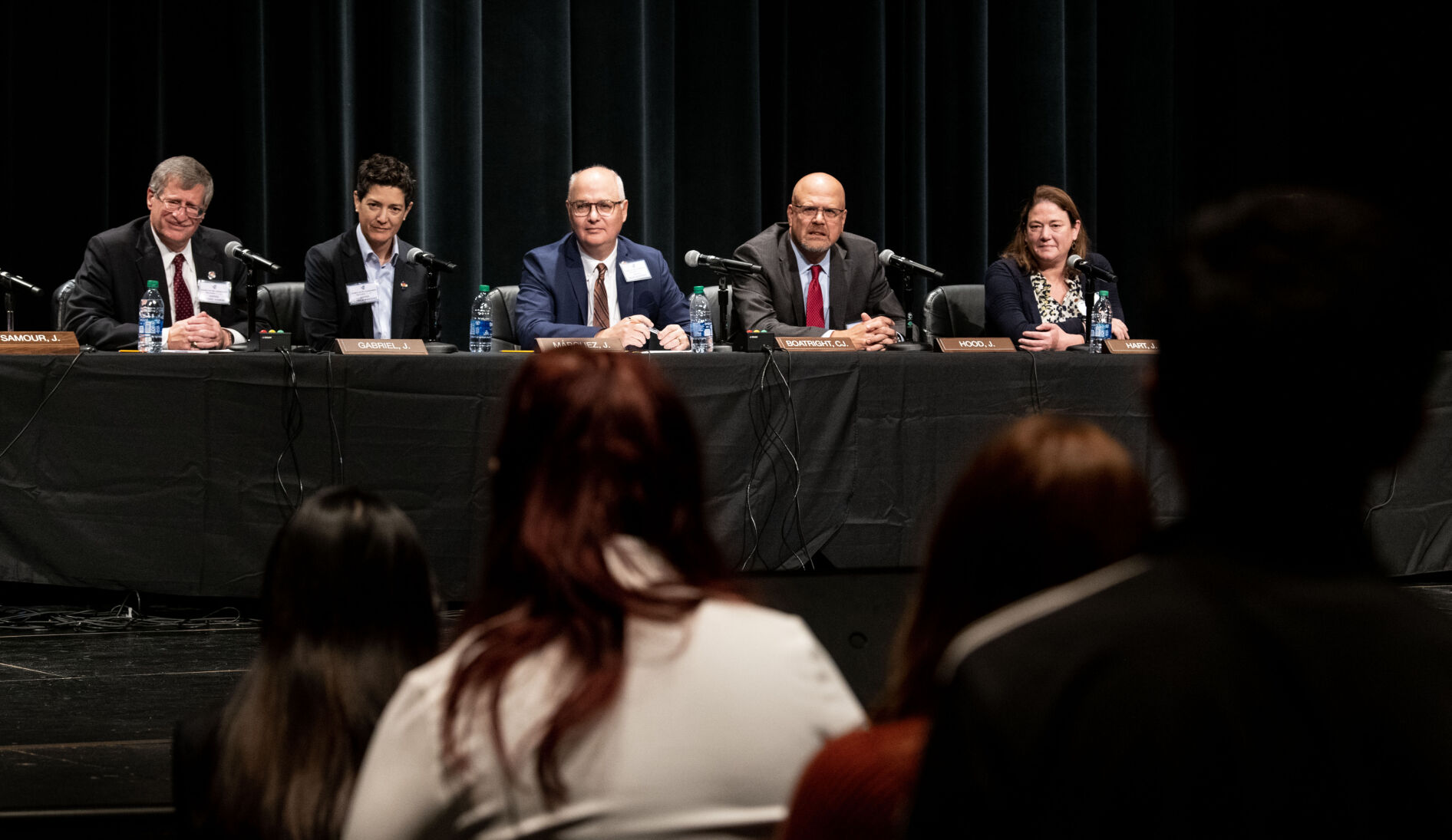Racial bias proposal for jury selection remains stalled in state Supreme Court

In February, the Colorado Supreme Court held a lengthy public hearing on a proposed rule change that would make it more difficult to remove jurors of color from criminal trials for reasons that, while not explicitly racial, may still correlate with their race.
But nearly seven months later, the Supreme Court has yet to take action on the controversial rule that drew praise from defense attorneys and stiff opposition from prosecutors. The delay is unusual by the court’s standards.
“The decision has taken a long time in my estimation,” said public defender Joyce Akhahenda, who spoke at the hearing on behalf of the Sam Cary Bar Association, a professional group for Black lawyers. “Our hope is that the length of time is indicative of a positive outcome. The proposed rule change is something which is definitely needed.”
Gordon McLaughlin, the elected district attorney for Larimer and Jackson counties who was critical of the proposal in February, added that it is important the justices achieve a “workable result” on any change to jury selection.
“While I don’t know what is occurring behind the scenes with the court, I do believe, having heard their comments during the hearing, that they understand the gravity of the issue and are working to get it right,” he said.
As of Aug. 30, the Supreme Court has spent 204 days mulling over the change to criminal Rule 24. In the past five years, the court has never taken that long to adopt a completed draft rule following a public hearing – and it has sometimes issued new rules as little as one day afterward.

Nearly 40 years ago, the U.S. Supreme Court recognized in Batson v. Kentucky that purposeful racial discrimination in jury selection was unconstitutional. Now, if a party – typically the prosecution – dismisses a juror of color, the defense may raise a “Batson challenge,” forcing the prosecutor to justify the dismissal with a non-racial reason.
However, appellate courts still hear cases of juror dismissals, or “strikes,” involving justifications that can appear race-related, without being explicitly racial. Last month, the state Supreme Court agreed to review a case where a Weld County prosecutor struck a Hispanic juror because he “appeared very disinterested” and had a “wandering mind.” The Court of Appeals found no evidence supported those claims.
Under the proposed change to Rule 24, demeanor-based reasons for striking jurors of color would need the corroboration of the trial judge or the opposing side to be valid. Also, certain non-racial explanations would not, on their own, be sufficient to remove a juror. Those would include if the juror expressed distrust of police, lived in a “high-crime neighborhood,” or had prior contact with law enforcement.
In 2021, the Supreme Court rejected a previous version of the proposal because its criminal rules committee was divided about the changes to Rule 24. The following year, four Democratic lawmakers attempted to enact the proposal legislatively, but they withdrew the bill in the face of uniform opposition from prosecutors. Instead, they asked the rules committee to try again.
The committee, which consists of prosecutors, defense attorneys and judges, produced another draft of the racial bias rule, which the Supreme Court set for a hearing in February. Once again, prosecutors voiced opposition, deriding it as “affirmative action in jury selection” and warning that prosecutors could be afraid to strike jurors of color. Defense attorneys and some trial judges countered with their own examples of bias under the current system.
A spokesperson for the judicial branch said the Supreme Court did not have any comment on the length of time it has taken to adopt or reject the rule changes. However, some parties with an interest in the outcome signaled they are ready for a decision.
“Colorado should be leading the fight against bias and racism in the criminal legal system and right now we are not,” said the state public defender’s office in a statement. “Changing this rule would be a good step to a more fair and just jury selection process in Colorado.”
“Given the importance of the issue the Supreme Court is addressing and the 200+ years of jurisprudence surrounding jury selection,” said Christian Champagne, the elected district attorney of the Sixth Judicial District who likened the Rule 24 proposal to affirmative action in February, “I appreciate the court being careful and thoughtful about something of this magnitude.”
Many people who spoke to Colorado Politics were not critical of the justices, but are nonetheless intrigued by the prolonged period without a resolution.
“I’m unsure what the holdup may be,” said Rep. Steven Woodrow, D-Denver, one of the lawmakers who attempted to enact similar racial bias prohibitions into law last year. “Hopefully, it’s a reflection of the thought and careful consideration being given to the issue by the justices.”
As for whether he is prepared to reintroduce his bill in 2024 if the delay in revising Rule 24 continues, “we will see where we are later this year and evaluate what may need to be done legislatively at that time,” Woodrow added.













